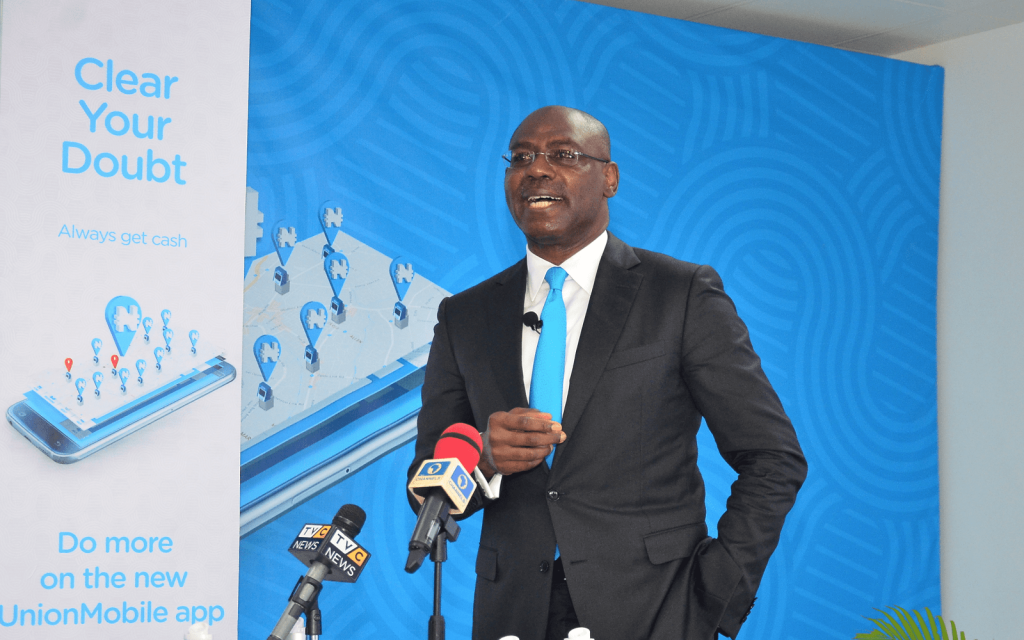Late last week, the Nigerian Stock Exchange announced that eighteen companies whose shares are listed on the Nigerian bourse, are free float deficient. For this reason, most of these companies’ shares were categorised as “below listing standard”. As we reported, this situation was partly caused by the overconcentration of shareholdings in the hands of members of boards and other high-profile individuals within these companies.
Seeing as CEOs are usually members of every company’s board of directors, and they are also typically in charge of the execution of company decisions, we hereby present to you some of the CEOs whose companies are included in the NSE X-Compliance report. Note that special focus will be on how much shareholding these CEOs have in these various companies.
Mr Olabode Makanjuola, the CEO of Caverton Offshore Support Group Plc
Mr Olabode Makanjuola’s official shareholding at Caverton Offshore Support Group Plc is 50,005,000 units of shares. This amounts to close to N100 million when multiplied by the company’s share price of N1.90.
Now, the company’s current free float percentage is 17.30%. This is about 2.70% less than the 20% free float which it is expected to have as an NSE main board company. Agreed, the disparity does not seem much. Yet, it has resulted in the company’s stock being categorised as below listing standard. Perhaps this would never have happened if the likes of Mr Makanjuola owned less shareholdings.
Mr Makanjuola holds a bachelor’s degree in Mechanical Engineering from the University of Leicester and a Master’s degree in Trade, Shipping and Finance from City University Business School. Since his appointment as the CEO and Executive Vice-Chairman of Caverton Offshore Support Group Plc, he has taken a lot of strategic business decisions aimed at ensuring profit. Unfortunately, avoiding corporate governance issues with the NSE doesn’t seem to be one of them.
Mr Michael E. Economakis, the Chief Executive Officer of A G Leventis Nigeria Plc
Mr Economakis’ A G Leventis Nigeria Plc has a free float percentage of 11.64%; about 8.36% less than the 20% it is required to have as a Main Board stock on the NSE.
Information contained in the company’s full year 2017 financial statement puts Mr Economakis’ shareholding at 1, 978, 395 units. Him and the rest of his colleagues (i.e., other members of the board of directors) own a collective 6,704,222 units of ordinary shares in the company. Interesting to note is that fact that most of these directors are foreign nationals.
Mr Economakis’ career spans over thirty five years, during which time he has worked in such notable global companies as Coca-Cola Hellenic, Rhodian Bottling Company, Nutriat S.A and more. He joined A G Leventis Nigeria Plc in 2012 as an Executive Director, and has since risen to his current position.
Dr Austin Asimonye, the MD/CEO of Austin Laz & Company Plc
According to the company’s 2017 full year financial results, Mr Asimonye owns a majority shareholding of 544,874,000 units. Perhaps this will not be surprising to many; after all, he founded the company. But owning that much units of shares all by himself in a small cap company like Austin Laz, has ultimately resulted in the company having a 5.51% free float deficiency. Today, the company’s stock is below listing standard.
Mr Asimonye has been the MD and CEO of Austin Laz & Company Plc since 1982. He is an accomplished engineer who designed/invented the first ice block making machine in Nigeria.
Mr Emeka Emuwa, the CEO of Union Bank Plc
Mr Emuwa owns some 53,354,517 units of direct shareholding at Union Bank Plc, and some 12,069,966 units of indirect shareholding. This adds up to a total of 65,424,483 units of ordinary shares. Note that other members of the company’s board of directors own millions of units in shares too.
When this adds up, it becomes easy to understand why Union Bank Plc, which by the way is doing well financially, now has a free float of just 14.94%. This marks some 5.6% less than the 20% free float expected of it as a company listed on the main board of the NSE. Now that the company’s shares are marked as below listing standard, it can only be hoped that Mr Emuwa and his team are working hard to fix the problem.
Mr Emuwa is a graduate of the University of Lagos where he bagged a B.Sc. in Finance. He also studied at Purdue University’s Krannert School of Management, graduating with an M.Sc. in Management. He has more than twenty years’ banking experience both within and outside Nigeria.
Mr Adewale Adeyipo, the Chief Executive Officer of CWG Plc
Just to be clear, this newly-appointed CEO probably has nothing to do with CWG Plc’s free float deficiency problem. The company’s full year 2017 financial report does not even include his name as one of the directors who own substantial stakes in the company. As a matter of fact, the man just assumed his new role as Chief Executive a few weeks ago.
But notwithstanding, he is the CEO now, and his company has a problem which needs an urgent solution. The company’s free float requirement has declined from 20% to 15.97%. And while this is not an outrageous decline, it does not remove from the fact that the company’s stock is now been tagged “below listing standard” by the NSE.
Perhaps this will be one of Mr Adeyipo’s main tasks- rectifying the problem. After all, the University of Ilorin, Computer Science graduate has what it takes to run a company. He is an alumnus of the Lagos Business School and has held top positions in some of Nigeria’s biggest IT firms, including MTN Nigeria.
Conclusion
It should be noted that the rest of the companies whose stocks are now categorised under “below listing standard” are so categorised because their CEOs and directors own more shares than they are supposed to. Hopefully, they will do the right thing by divesting some of their shares, in order to ensure free float.
